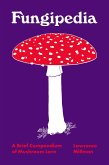*2011 Winner, International Association of Culinary Professionals Jane Grigson Award
*2011 Finalist, International Association of Culinary Professionals in the Culinary History category
Throughout history, people have had a complex and confusing relationship with mushrooms. Are fungi food or medicine, beneficial decomposers or deadly "toadstools" ready to kill anyone foolhardy enough to eat them? In fact, there is truth in all these statements. In Chanterelle Dreams, Amanita Nightmares, author Greg Marley reveals some of the wonders and mysteries of mushrooms, and our conflicting human reactions to them.
With tales from around the world, Marley, a seasoned mushroom expert, explains that some cultures are mycophilic (mushroom-loving), like those of Russia and Eastern Europe, while others are intensely mycophobic (mushroom-fearing), including, the US. He shares stories from China, Japan, and Korea-where mushrooms are interwoven into the fabric of daily life as food, medicine, fable, and folklore-and from Slavic countries where whole families leave villages and cities during rainy periods of the late summer and fall and traipse into the forests for mushroom-collecting excursions.
From the famous Amanita phalloides (aka "the Death Cap"), reputed killer of Emperor Claudius in the first century AD, to the beloved chanterelle (cantharellus cibarius) known by at least eighty-nine different common names in almost twenty-five languages, Chanterelle Dreams, Amanita Nightmares explores the ways that mushrooms have shaped societies all over the globe.
This fascinating and fresh look at mushrooms-their natural history, their uses and abuses, their pleasures and dangers-is a splendid introduction to both fungi themselves and to our human fascination with them. From useful descriptions of the most foolproof edible species to revealing stories about hallucinogenic or poisonous, yet often beautiful, fungi, Marley's long and passionate experience will inform and inspire readers with the stories of these dark and mysterious denizens of our forest floor.
*2011 Finalist, International Association of Culinary Professionals in the Culinary History category
Throughout history, people have had a complex and confusing relationship with mushrooms. Are fungi food or medicine, beneficial decomposers or deadly "toadstools" ready to kill anyone foolhardy enough to eat them? In fact, there is truth in all these statements. In Chanterelle Dreams, Amanita Nightmares, author Greg Marley reveals some of the wonders and mysteries of mushrooms, and our conflicting human reactions to them.
With tales from around the world, Marley, a seasoned mushroom expert, explains that some cultures are mycophilic (mushroom-loving), like those of Russia and Eastern Europe, while others are intensely mycophobic (mushroom-fearing), including, the US. He shares stories from China, Japan, and Korea-where mushrooms are interwoven into the fabric of daily life as food, medicine, fable, and folklore-and from Slavic countries where whole families leave villages and cities during rainy periods of the late summer and fall and traipse into the forests for mushroom-collecting excursions.
From the famous Amanita phalloides (aka "the Death Cap"), reputed killer of Emperor Claudius in the first century AD, to the beloved chanterelle (cantharellus cibarius) known by at least eighty-nine different common names in almost twenty-five languages, Chanterelle Dreams, Amanita Nightmares explores the ways that mushrooms have shaped societies all over the globe.
This fascinating and fresh look at mushrooms-their natural history, their uses and abuses, their pleasures and dangers-is a splendid introduction to both fungi themselves and to our human fascination with them. From useful descriptions of the most foolproof edible species to revealing stories about hallucinogenic or poisonous, yet often beautiful, fungi, Marley's long and passionate experience will inform and inspire readers with the stories of these dark and mysterious denizens of our forest floor.
Dieser Download kann aus rechtlichen Gründen nur mit Rechnungsadresse in A, D ausgeliefert werden.









